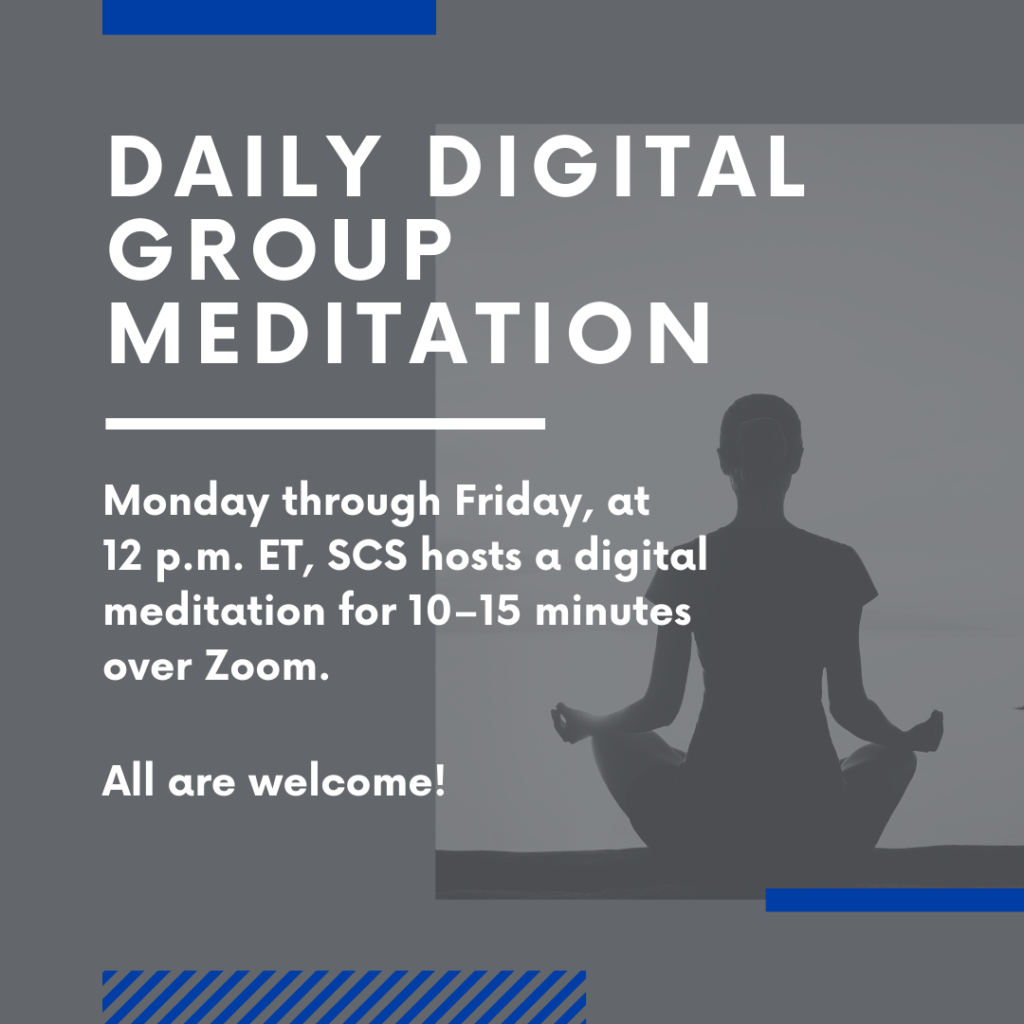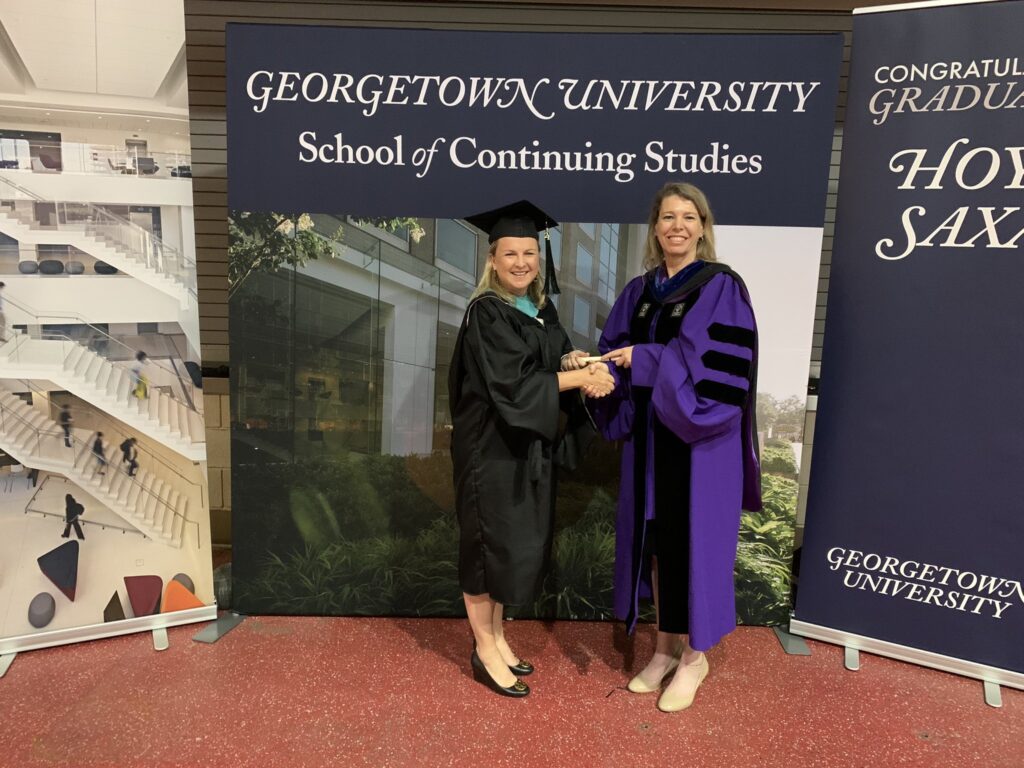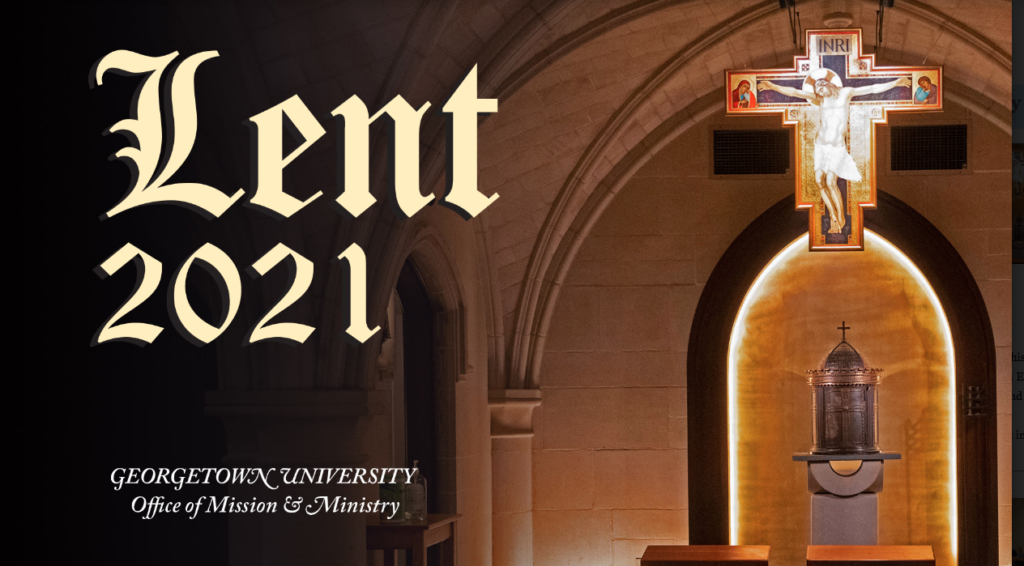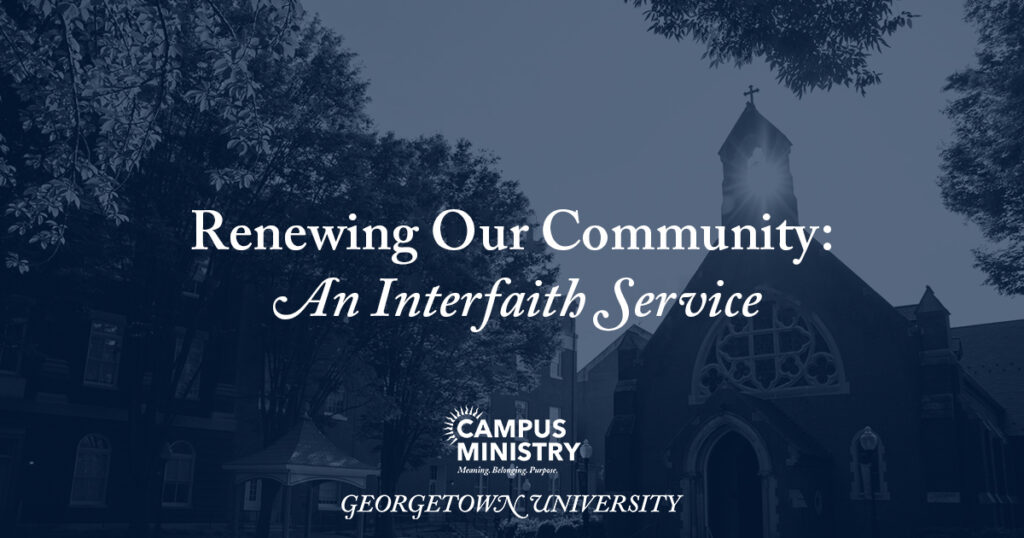
Since the pandemic began, the School of Continuing Studies has offered a digital daily meditation each day of the workweek. The meditations have become an important piece of the School’s commitment to Care for the Whole Person as we continue to confront the challenges of COVID-19 and its related disruptions and stresses. For two years, Mission in Motion has reflected on the meaning and purpose of the daily offering of meditation, including a post last summer that featured testimonials from regular attendees: “The Value of Inner Silence: Participants Reflect on the Benefits of SCS Daily Digital Meditations.” In that reflection, I offered some insights about the physical, mental, and spiritual benefits of such a daily mindfulness practice. More than 200 students, staff, faculty, and alumni have registered to receive the log-in instructions since March 2020, and I continue to enthusiastically lead these sessions and believe in their enduring value. The virtual nature of this activity has enabled greater access to our SCS community members dispersed in different places.
With the fall semester well underway, I want to answer some frequently asked questions about the meditations we offer. My hope is that some or all of these questions help persuade you to join our welcoming community and put into practice the University’s Jesuit value of Contemplation in Action.
What if I have never practiced meditation? What can I expect?
The SCS Daily Digital Meditation is a form of mindfulness practice and there is no prerequisite for participating. It starts at 12:00 p.m. ET and runs until about 12:17 p.m. ET. During that time, we engage in a body scan, a conscious breathing exercise, nine minutes of silent centering meditation assisted by a piano soundtrack that facilitates a sacred setting for attendees, and a short closing. Most participants join the Zoom room on camera and then turn off the camera as we transition into the meditation experience. The approach is inspired by Western and Eastern traditions and the core exercise resembles “centering prayer” with its encouragement of naming a single, sacred word to gently push aside any distracting thoughts or feelings that creep into one’s conscious awareness during the time of pure silence. On Fridays, we practice an inclusive form of the Examen, modeled on Ignatian Spirituality, to reverentially review in silence the experiences of our week.
What if I like the idea of meditation, but committing to a daily practice feels like too much?
We hold the meditations every weekday and you’re welcome to attend whenever you like. Some attendees participate multiple times a week and others log in less frequently. There is no expectation to join on a regular basis. Daily meditations allow us to include as many participants as possible each week. And even though the sessions are in silence, there is a feeling of community among those who log in. As one participant shared: “I wasn’t sure how I would feel practicing meditation with a group. As it turns out, over the past several months I have found a community of individuals who share a common goal of sitting in silence to contemplate whatever they are dealing with on any particular day.”
I’m interested in the meditations, but what else can you tell me about it and other similar programs being offered at Georgetown?
Please reach out to me, Jamie Kralovec, SCS Associate Director for Mission Integration, at pjk34@georgetown.edu. At Georgetown, there are many ways to practice mindfulness and wellness along with spiritual development. You can also learn more about Georgetown wellness (for students and faculty/staff) and spiritual accompaniment.







